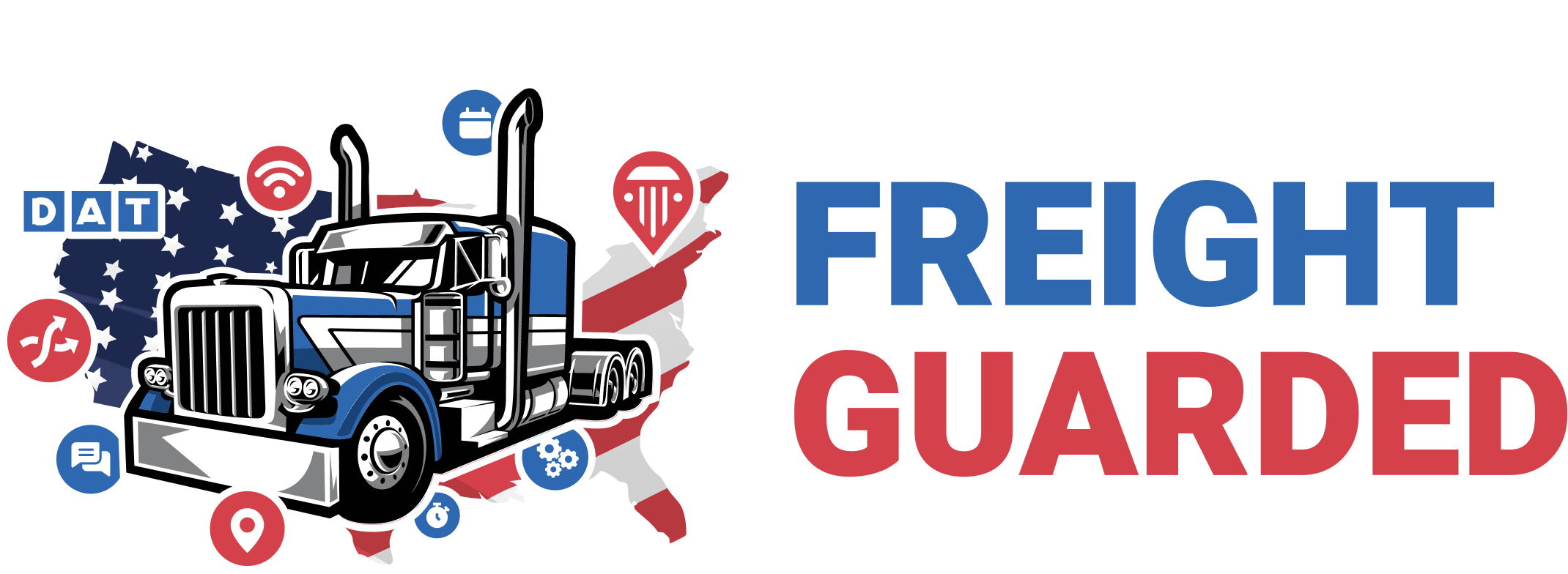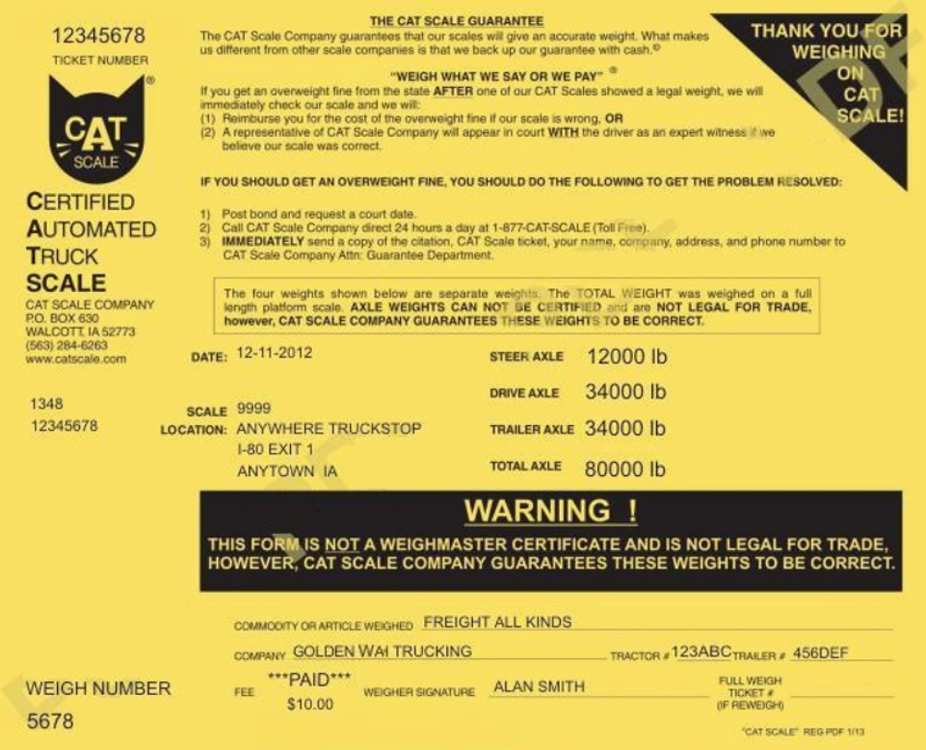Scale tickets are a fundamental aspect of the trucking industry in the United States, serving as official records of a vehicle's weight. These documents are crucial for compliance with federal and state regulations regarding maximum allowable weights for commercial vehicles. Understanding the importance and use of scale tickets is essential for ensuring the safety, legal operation, and efficiency of trucking operations.
Purpose of Scale Tickets
- Regulatory Compliance: Scale tickets help ensure that trucks comply with the legal weight limits, which are designed to prevent road damage and ensure safety. The federal weight limit on Interstate Highways is generally 80,000 pounds, but specific limits can vary by state and road type.
- Safety: Overloaded trucks can pose significant safety risks, including increased stopping distances, reduced maneuverability, and a higher likelihood of tire or mechanical failures. Scale tickets verify that a truck's weight is within safe operating limits.
- Infrastructure Protection: Excessive vehicle weight can cause undue wear and tear on roadways and bridges. Weight compliance, as evidenced by scale tickets, helps protect infrastructure and reduce the need for costly repairs.
- Cost Management: Overweight fines can be substantial. By using scale tickets to confirm compliance, trucking companies can avoid these penalties. Additionally, proper weight management can also reduce fuel consumption and vehicle wear-and-tear, leading to operational savings.
How Scale Tickets are Obtained
Trucks can be weighed at various points, including:
- Weigh Stations: Operated by state departments of transportation, these are typically found along highways. Trucks may be required to stop based on signage, random selection, or weigh-in-motion systems.
- Commercial Scales: Available at truck stops, shipping facilities, and some warehouses, these scales provide a service for drivers to weigh their vehicles and obtain scale tickets for a fee.
How do I get a scale ticket:
- Arrive at the Scale: Drive to the location with the certified scale. Ensure your truck is ready to be weighed, with the load secured and distributed as it will be during transit.
- Follow On-Site Instructions: Commercial scales typically have clear signage directing trucks to the scale. You may need to wait in line if other vehicles are being weighed.
- Position Your Truck on the Scale: Once it's your turn, drive your truck onto the scale platform as directed, making sure the entire vehicle is properly positioned for an accurate weight measurement. Follow any instructions from the scale operator regarding stopping and idling.
- After the scale stabilizes, the operator will record your truck's weight. Some scales are self-service and provide instructions on a kiosk or display for obtaining the weight reading.
- Request a Printed Ticket: Once your weight is recorded, request a printed scale ticket from the operator. If it's a self-service scale, the machine will typically print one automatically after the weighing process.
- Review the Ticket: Check the scale ticket for accuracy, ensuring it displays the correct date, time, gross vehicle weight, axle weights (if applicable), and any other relevant information.
- Pay the Fee: There is usually a fee for obtaining a scale ticket. Pay the fee as required, which might be done at the scale, at a nearby service desk, or through a payment machine.
- Retain Your Ticket: Keep your scale ticket for your records. You may need it for compliance verification, billing purposes, or in case of disputes.
- Re-Weighs: Some locations offer a reduced rate for re-weighs if you need to adjust your load and verify the new weight. Check the policy at the scale you're using.
Information on a Scale Ticket
A typical scale ticket includes:
- Vehicle Identification: This might include the truck's license plate number, company name, or other identifiers.
- Date and Time: The exact time and date of the weigh-in.
- Gross Vehicle Weight (GVW): The total weight of the vehicle and its cargo.
- Axle Weights: Individual weights of the truck's axles, important for ensuring no single axle is overloaded.
- Scale Location: The name and location of the facility where the weight was measured.
Managing Scale Tickets
Trucking companies and drivers should maintain records of scale tickets for various reasons:
- Regulatory Audits: Documentation may be required during inspections or audits to prove compliance with weight regulations.
- Dispute Resolution: In the event of a discrepancy or dispute over vehicle weights, scale tickets serve as official evidence.
- Operational Analysis: Reviewing scale tickets can help identify trends in load weights and vehicle usage, informing operational improvements.
Scale tickets are more than just pieces of paper in the trucking industry; they are critical tools for ensuring legal compliance, safety, and operational efficiency. By adhering to weight regulations and managing scale ticket records effectively, trucking companies can mitigate risks, avoid penalties, and contribute to the overall safety and sustainability of the transportation infrastructure.

.thumb.jpg.79710ba0be5a9f3be83fb45bcaf36e79.jpg)
